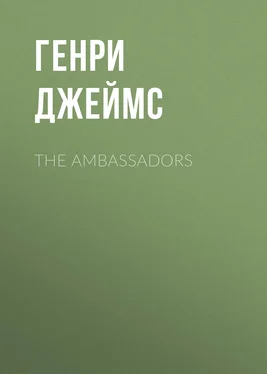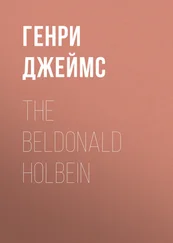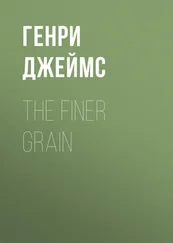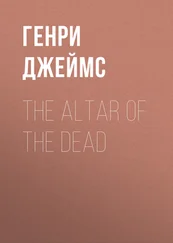Генри Джеймс - The Ambassadors
Здесь есть возможность читать онлайн «Генри Джеймс - The Ambassadors» — ознакомительный отрывок электронной книги совершенно бесплатно, а после прочтения отрывка купить полную версию. В некоторых случаях можно слушать аудио, скачать через торрент в формате fb2 и присутствует краткое содержание. Жанр: Социально-психологическая фантастика, foreign_antique, foreign_prose, на английском языке. Описание произведения, (предисловие) а так же отзывы посетителей доступны на портале библиотеки ЛибКат.
- Название:The Ambassadors
- Автор:
- Жанр:
- Год:неизвестен
- ISBN:нет данных
- Рейтинг книги:5 / 5. Голосов: 1
-
Избранное:Добавить в избранное
- Отзывы:
-
Ваша оценка:
- 100
- 1
- 2
- 3
- 4
- 5
The Ambassadors: краткое содержание, описание и аннотация
Предлагаем к чтению аннотацию, описание, краткое содержание или предисловие (зависит от того, что написал сам автор книги «The Ambassadors»). Если вы не нашли необходимую информацию о книге — напишите в комментариях, мы постараемся отыскать её.
The Ambassadors — читать онлайн ознакомительный отрывок
Ниже представлен текст книги, разбитый по страницам. Система сохранения места последней прочитанной страницы, позволяет с удобством читать онлайн бесплатно книгу «The Ambassadors», без необходимости каждый раз заново искать на чём Вы остановились. Поставьте закладку, и сможете в любой момент перейти на страницу, на которой закончили чтение.
Интервал:
Закладка:
Henry James
The Ambassadors
Volume I
Preface
Nothing is more easy than to state the subject of "The Ambassadors," which first appeared in twelve numbers of The North American Review (1903) and was published as a whole the same year. The situation involved is gathered up betimes, that is in the second chapter of Book Fifth, for the reader's benefit, into as few words as possible—planted or "sunk," stiffly and saliently, in the centre of the current, almost perhaps to the obstruction of traffic. Never can a composition of this sort have sprung straighter from a dropped grain of suggestion, and never can that grain, developed, overgrown and smothered, have yet lurked more in the mass as an independent particle. The whole case, in fine, is in Lambert Strether's irrepressible outbreak to little Bilham on the Sunday afternoon in Gloriani's garden, the candour with which he yields, for his young friend's enlightenment, to the charming admonition of that crisis. The idea of the tale resides indeed in the very fact that an hour of such unprecedented ease should have been felt by him AS a crisis, and he is at pains to express it for us as neatly as we could desire. The remarks to which he thus gives utterance contain the essence of "The Ambassadors," his fingers close, before he has done, round the stem of the full-blown flower; which, after that fashion, he continues officiously to present to us. "Live all you can; it's a mistake not to. It doesn't so much matter what you do in particular so long as you have your life. If you haven't had that what HAVE you had? I'm too old—too old at any rate for what I see. What one loses one loses; make no mistake about that. Still, we have the illusion of freedom; therefore don't, like me to-day, be without the memory of that illusion. I was either, at the right time, too stupid or too intelligent to have it, and now I'm a case of reaction against the mistake. Do what you like so long as you don't make it. For it WAS a mistake. Live, live!" Such is the gist of Strether's appeal to the impressed youth, whom he likes and whom he desires to befriend; the word "mistake" occurs several times, it will be seen, in the course of his remarks—which gives the measure of the signal warning he feels attached to his case. He has accordingly missed too much, though perhaps after all constitutionally qualified for a better part, and he wakes up to it in conditions that press the spring of a terrible question. WOULD there yet perhaps be time for reparation?—reparation, that is, for the injury done his character; for the affront, he is quite ready to say, so stupidly put upon it and in which he has even himself had so clumsy a hand? The answer to which is that he now at all events SEES; so that the business of my tale and the march of my action, not to say the precious moral of everything, is just my demonstration of this process of vision.
Nothing can exceed the closeness with which the whole fits again into its germ. That had been given me bodily, as usual, by the spoken word, for I was to take the image over exactly as I happened to have met it. A friend had repeated to me, with great appreciation, a thing or two said to him by a man of distinction, much his senior, and to which a sense akin to that of Strether's melancholy eloquence might be imputed—said as chance would have, and so easily might, in Paris, and in a charming old garden attached to a house of art, and on a Sunday afternoon of summer, many persons of great interest being present. The observation there listened to and gathered up had contained part of the "note" that I was to recognise on the spot as to my purpose—had contained in fact the greater part; the rest was in the place and the time and the scene they sketched: these constituents clustered and combined to give me further support, to give me what I may call the note absolute. There it stands, accordingly, full in the tideway; driven in, with hard taps, like some strong stake for the noose of a cable, the swirl of the current roundabout it. What amplified the hint to more than the bulk of hints in general was the gift with it of the old Paris garden, for in that token were sealed up values infinitely precious. There was of course the seal to break and each item of the packet to count over and handle and estimate; but somehow, in the light of the hint, all the elements of a situation of the sort most to my taste were there. I could even remember no occasion on which, so confronted, I had found it of a livelier interest to take stock, in this fashion, of suggested wealth. For I think, verily, that there are degrees of merit in subjects—in spite of the fact that to treat even one of the most ambiguous with due decency we must for the time, for the feverish and prejudiced hour, at least figure its merit and its dignity as POSSIBLY absolute. What it comes to, doubtless, is that even among the supremely good—since with such alone is it one's theory of one's honour to be concerned—there is an ideal BEAUTY of goodness the invoked action of which is to raise the artistic faith to its maximum. Then truly, I hold, one's theme may be said to shine, and that of "The Ambassadors," I confess, wore this glow for me from beginning to end. Fortunately thus I am able to estimate this as, frankly, quite the best, "all round," of all my productions; any failure of that justification would have made such an extreme of complacency publicly fatuous.
I recall then in this connexion no moment of subjective intermittence, never one of those alarms as for a suspected hollow beneath one's feet, a felt ingratitude in the scheme adopted, under which confidence fails and opportunity seems but to mock. If the motive of "The Wings of the Dove," as I have noted, was to worry me at moments by a sealing-up of its face—though without prejudice to its again, of a sudden, fairly grimacing with expression—so in this other business I had absolute conviction and constant clearness to deal with; it had been a frank proposition, the whole bunch of data, installed on my premises like a monotony of fine weather. (The order of composition, in these things, I may mention, was reversed by the order of publication; the earlier written of the two books having appeared as the later.) Even under the weight of my hero's years I could feel my postulate firm; even under the strain of the difference between those of Madame de Vionnet and those of Chad Newsome, a difference liable to be denounced as shocking, I could still feel it serene. Nothing resisted, nothing betrayed, I seem to make out, in this full and sound sense of the matter; it shed from any side I could turn it to the same golden glow. I rejoiced in the promise of a hero so mature, who would give me thereby the more to bite into—since it's only into thickened motive and accumulated character, I think, that the painter of life bites more than a little. My poor friend should have accumulated character, certainly; or rather would be quite naturally and handsomely possessed of it, in the sense that he would have, and would always have felt he had, imagination galore, and that this yet wouldn't have wrecked him. It was immeasurable, the opportunity to "do" a man of imagination, for if THERE mightn't be a chance to "bite," where in the world might it be? This personage of course, so enriched, wouldn't give me, for his type, imagination in PREDOMINANCE or as his prime faculty, nor should I, in view of other matters, have found that convenient. So particular a luxury—some occasion, that is, for study of the high gift in SUPREME command of a case or of a career—would still doubtless come on the day I should be ready to pay for it; and till then might, as from far back, remain hung up well in view and just out of reach. The comparative case meanwhile would serve—it was only on the minor scale that I had treated myself even to comparative cases.
Читать дальшеИнтервал:
Закладка:
Похожие книги на «The Ambassadors»
Представляем Вашему вниманию похожие книги на «The Ambassadors» списком для выбора. Мы отобрали схожую по названию и смыслу литературу в надежде предоставить читателям больше вариантов отыскать новые, интересные, ещё непрочитанные произведения.
Обсуждение, отзывы о книге «The Ambassadors» и просто собственные мнения читателей. Оставьте ваши комментарии, напишите, что Вы думаете о произведении, его смысле или главных героях. Укажите что конкретно понравилось, а что нет, и почему Вы так считаете.












